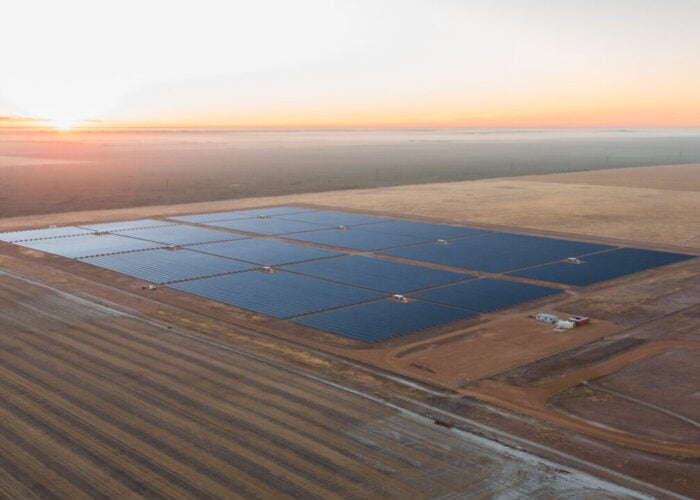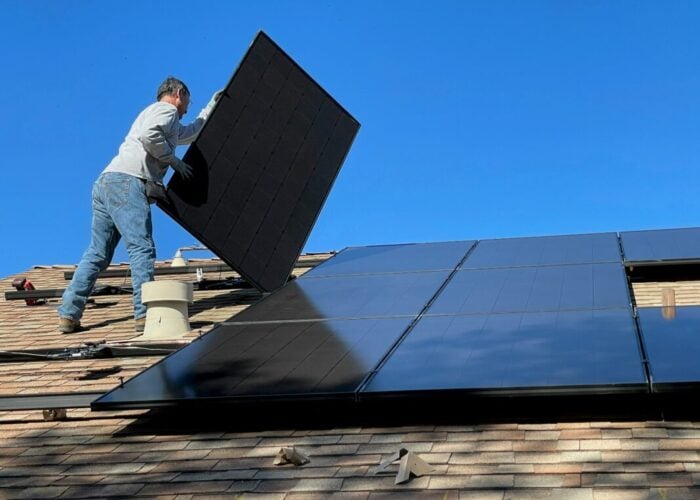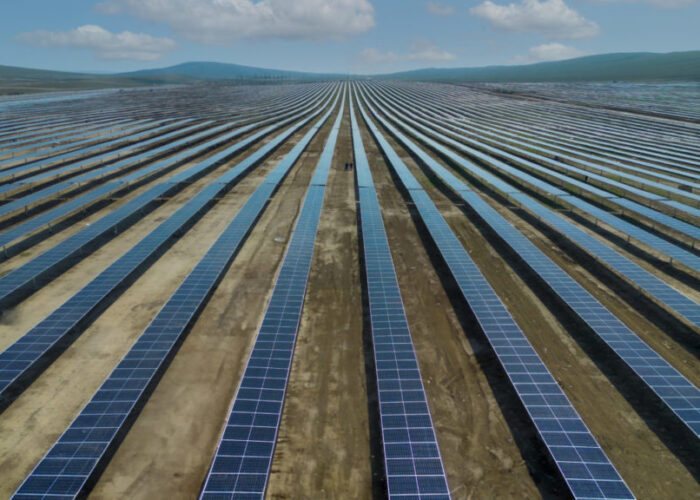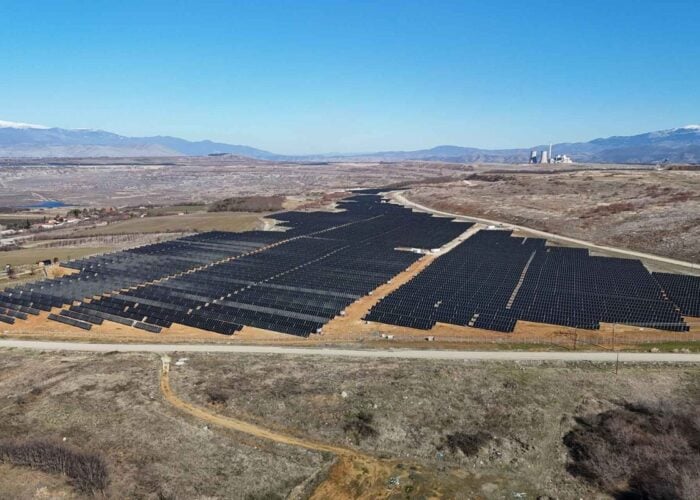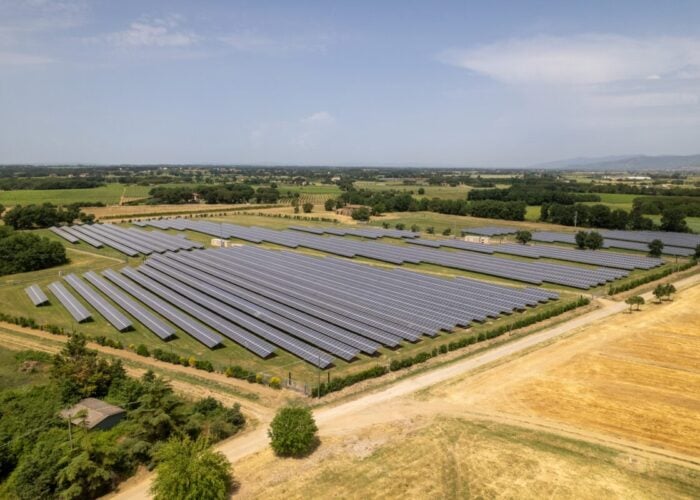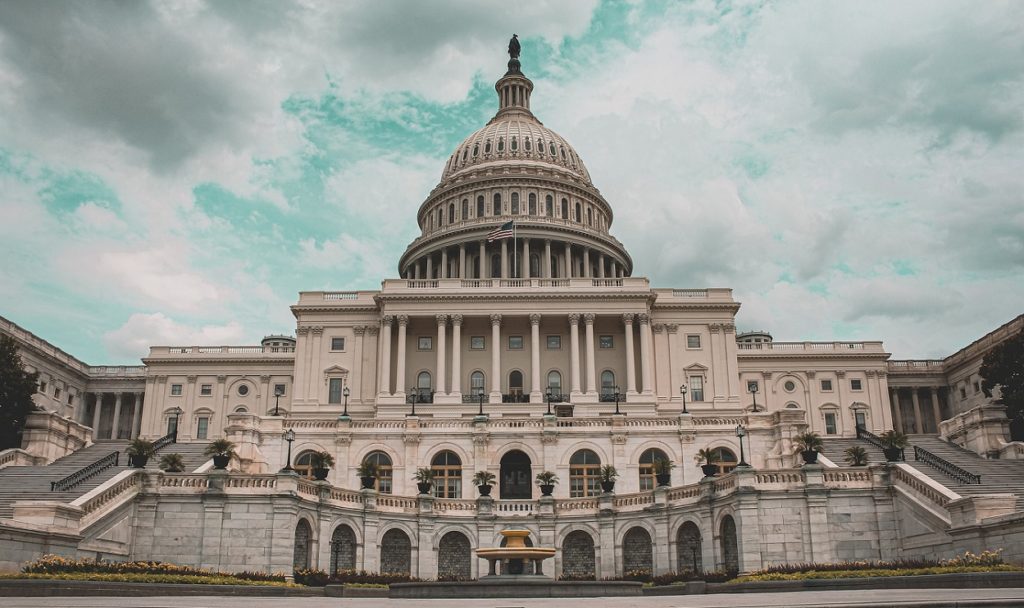
The US Senate has narrowly passed – with a 51-50 vote and with vice-president JD Vance breaking the tie – the reconciliation bill yesterday (1 July) without the solar and wind excise tax.
Unveiled last Friday, the Senate’s first full draft of the bill introduced a new excise tax – on any projects that began construction after 16 June and use a certain threshold of foreign entities of concern (FEOC) materials – which did not make the cut in the end, and was most likely the biggest significant change from the Senate’s draft.
Try Premium for just $1
- Full premium access for the first month at only $1
- Converts to an annual rate after 30 days unless cancelled
- Cancel anytime during the trial period
Premium Benefits
- Expert industry analysis and interviews
- Digital access to PV Tech Power journal
- Exclusive event discounts
Or get the full Premium subscription right away
Or continue reading this article for free
After nearly 24 hours of ‘vote-o-rama,’ which started on Monday, the bill now goes back to the US House of Representatives for a vote that could happen in the coming hours, if House Republicans aim to bring the bill to Donald Trump’s desk by 4 July, as per the US president’s deadline.
More time to qualify for 45Y/48E credits
Other than that U-turn on the excise tax, most of the provisions already announced and covered previously remain in the 870-page long bill, with a slight relief for certain tax credits. Even though credits for both 45Y production tax credit (PTC) and 48E investment tax credit (ITC) of solar PV and wind projects will still phase out at the end of 2027 – brought forward from the original 2032 date in the Inflation Reduction Act – projects will have some additional time to still be eligible for either credits.
Indeed, projects that start construction within 12 months of the bill’s passing can still qualify for the credits, even if these do not begin operations by 2027. Projects that begin construction after that 12-month period will be required to be operational before the end of 2027 to be able to apply for the tax credits. However, this will not affect energy storage, which has no phase-out by 2027 of 48E/45Y and remains in place until the original Inflation Reduction Act deadline of 2032.
“If this version becomes law, then the industry would be able to start construction through mid-2026 and have four years to build at 100% ITC/PTC. This would be a big win as volumes likely would not drop off a cliff in 2028, as the prior Senate version draft proposed,” said Roth Capital.
However, for all three clean energy technologies, FEOC restrictions will be enforced to limit the ability to avail of PTC and ITC incentives if material assistance from prohibited foreign entities exceeds certain thresholds, which will increase each year. While the draft bill introduced an immediate deadline, the new version at least appears to have bought developers a little more time.
“Material assistance would apply beginning 1/1/26 vs. 6/16/25 in the draft. This means if a project starts construction in 2025, project-level FEOC restrictions would not apply. The threshold percentages remain the same as the draft. Taxpayer level FEOC restrictions also remained mostly the same as the draft,” according to Roth Capital’s reading of the legislation.
Moreover, domestic content under Section 48E for projects that began construction before 16 June 2025 will be subject to the 40% adjusted percentage to obtain domestic content bonus, which increases to 45% for solar PV and energy storage projects built after that date and before the end of 2025.
“In the case of any qualified investment with respect to any qualified facility or energy storage technology the construction of which begins during calendar year 2026, 50 percent,” reads the bill. This increases to 55% for energy storage projects that begin construction after the end of 2026.
Change in battery module definition
Other significant elements of the bill are that the eligibility of tax credits will still be restricted for FEOC and the fate of the residential sector still remains negative since the bill was brought up in May 2025, with Section 25D ending at the end of the year.
Although energy storage has been saved from earlier phase out of several tax credits, the latest iteration of the bill did however change the definition of a battery module under Section 45X. The following has been added to the bill regarding the definition of a battery module: “which is comprised of all other essential equipment needed for battery functionality, such as current collector assemblies and voltage sense harnesses, or any other essential energy collection equipment.”
‘This legislation would set back America’s global competitiveness’
The industry’s reaction towards the Senate’s bill has been mostly negative with Abigail Ross Hopper, president and CEO of the Solar Energy Industries Association (SEIA), saying that the legislation undermines the country’s manufacturing comeback and its global energy leadership.
“Enacting this legislation would set back America’s global competitiveness, destabilise our energy future, and weaken the very industries that power our economy and strengthen our national security—while surrendering the 21st-century tech race to China. It will strip the ability of millions of American families to choose the energy savings, energy resilience, and energy freedom that solar and storage provide.
“As the House re-considers this legislation, every member should ask themselves what kind of future they’re voting for. Our communities, our businesses, and our futures are on the line,” said Hopper.
Days after the US House Ways and Means Committee bill was proposed in May 2025, SEIA released a report which outlines the possible impact of the bill on US solar and energy storage manufacturing. In that report, SEIA forecast that the bill could “jeopardise” the fate of nearly 300 manufacturing facilities, most of which located in Republican-voting states.
With domestic manufacturing facilities on the line, this would end up favouring the Chinese supply chain, according to Mike Carr, Executive Director of the Solar Energy Manufacturers for America (SEMA) Coalition.
“By quickly terminating incentives to buy American-made solar, China will continue to benefit from American taxpayer dollars for projects beginning construction by the end of the year. Anticipating the end of any incentive to buy American products, there will be significant stockpiling of Chinese panels, which will build out the majority of new US energy additions in the coming years. Losing the force of the Domestic Content Bonus further pulls the rug out from under companies who stepped up to do what is right for American energy dominance and American competitiveness,” said Carr.
Ray Long, President and CEO of the American Council on Renewable Energy (ACORE), said that the outcome of the bill was not what “we had hoped for, our industry will continue to press forward.”
“The clean energy industry has been clear eyed that a phase out of the clean energy tax credits was coming,” added Long
“NEMA urges the House to create eligibility for clean energy technology tax credits at ‘start of construction’ rather than the drafted ‘placed in service’ date to allow for full immediate investment and deployment of in-process projects that will bring kilowatts to the grid,” said National Electrical Manufacturers Association (NEMA) President and CEO, Debra Phillips.
Jason Grumet, CEO at the American Clean Power Association (ACP), called the Senate’s version of the bill a “step backward” for American energy policy, adding that: “The intentional effort to undermine the fastest-growing sources of electric power will lead to increased energy bills, decreased grid reliability, and the loss of hundreds of thousands of jobs.
“Most discouraging is forfeiting the progress we’ve made in manufacturing batteries, wind turbines and solar panels, and the economic growth occurring in communities across the country.”
The statement from trade association the Coalition for Community Solar Access (CCSA) called the Senate bill a “dangerous turning point for America’s energy future”.
“This bill will strand thousands of energy projects under development, jeopardise billions of dollars in private investment, and kill hundreds of thousands of good-paying American jobs — from electricians to contractors to local landowners and farmers who rely on these projects for stability.
“At a time when artificial intelligence and electrification are set to drive an unprecedented 150 gigawatts of new load, this legislation will leave states with an impossible choice: wait nearly a decade to add new capacity to deal with rising demand or raise electricity prices on hardworking families and small businesses,” concluded CCSA.


